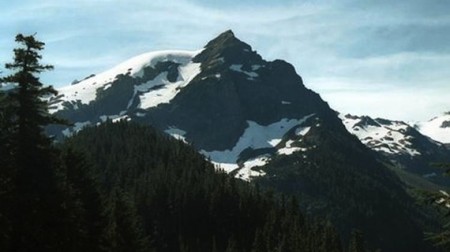
Prime Minister Lucas Papademos and Minister Evangelos Venizelos are counting the hours,and Greeks the minutes. In Brussels,where the Eurozone finance ministers are about once more to review the pending deal between Athens and troika representatives,the mood is already bad. However,our eyes are pointed on Greece,because nobody can tell what is happening. Which decisions are taken? Will the country succumb,or the sea of strikes ever end? All demons are free,all winds are on;distance might help to think.
Mr. Novak has spent the last week in the village of Litochoro,on the eastern slopes of Mount Olympus. The guest of a SEO member (Hellenic Mountaineering Club),he lodged for a couple of nights in the “Kakkalos” Refuge,located at the eastern margin of the Plateau of Muses at an altitude of 2650m. The idea was to spend a couple of days where not many would be,and clear their minds on what is happening in Greece.
Going up there,one has to know what to expect and how to deal with it. On Olympus,temperatures can go down to –20C,and avalanche danger is permanent. Fearless,Miha and Nikos didn’t stop in front of possible hypothermia;didn’t stop due to the daunting high they had to climb to. They just didn’t give up;both mountaineers,one grew up in Slovenia,the other under the ‘Gods’home’,they check the weather conditions and headed for the refuge.
There,in the thin air,above the noise of people’s lives,thinking was easier;and a long term perspective came as a given. In Miha’s words:“One can’t but see that things shall pass,no matter what.”
Back in Athens,Mr. Novak called me up,invited me over. In front of a beaming fire,in his warm and quiet flat,he started to spread photos on a low table. The contrast with the general atmosphere ruling in Greece was tragic:down here the rage and fear of announced hard times,up there the cold distance of Nature looking down on people without to care. In a way,it gave me a new way to look at things.
Mr. Novak felt relief at the news that the Greek government reached an agreement,and seemed to be able to keep Greece in the European union. Now,he is waiting to see the next move;things are vague,again.
“We will make it,remember people survived worse things” he utters,sober. Then he vanishes in the kitchen.
When Miha came back he held in his hands two glasses of handmade Cviček wine. Cviček is one of the most unique wines in Slovenia. It has a light red color with a ruby cast,a fruity aromas,with an emphasis on raspberry,cherry and red currant. It is one of the most enjoyable wines to have in front of a fire,while philosophizing. Janez Vajkard Valvasor,the Slovenian historian who mentioned this wine in his work ‘The Glory of the Duchy of Carniola’ knew it well:“Marwein,the jolly wine of the Dolenjska region”,know stood in front of me.
“We made it in Slovenia,they will make it in Greece;the secret is to learn to export the best you have,and let the world know about it,buy it… like this wine.” He winked,smiled.
It is true. The name Marwein was preserved until the end of the 18th century,but its revival came at the turn of the 19th century,when it acquired a new name,Cviček. Back then the wine was perfected and was exported;but it was not until Slovenia’s independence in 1991,that this wine made it to the wine lists of fine Paris restaurants. Why could the Greeks not do the same with their marvelous local products?
Mr. Novak continues:“The refuge we lodged in,it’s named after Christos Kakkalos. Together with Boissonnas and Bovy,he made the first recorded ascent to Olympus highest peak Mytikas, in 1913. Do you know that Fred Boissonnas loved Cviček?”
Only then I realized that Miha,in his peculiar way,was trying to let me see how time shall pass and things will be better.
Showing me his photos;the glacier,the snow,the refuge,and dawn with a view of Mount Athos,Miha continued to remind me that the Greeks are philosophers but most of all merchants,fighter,and spirited entrepreneur;they just need to remember it,and embrace it.
Looking at Mount Olympus,the almost permanent cloud that covers its peaks,my heart filled with awe and admiration. I followed the voice of this architect from Ljubljana,who maintains a flat in Athens,and has not intention to leave the country,and felt grateful to be there.
He went on,narrated how “The history of Mount Olympus is unsteady as the one of Greece. During the invasion in 1941,the Greek army along with Australian and New Zealand units fought on it against the Germans and Italians. Later,the Greek Resistance found a nestling place there…”
Soon enough it was dinnertime,and some of Mr. Novak’s friends came along. We were there,again a mix of Greeks and foreigners,again determined to remain somehow in the country,no matter what,and fight.